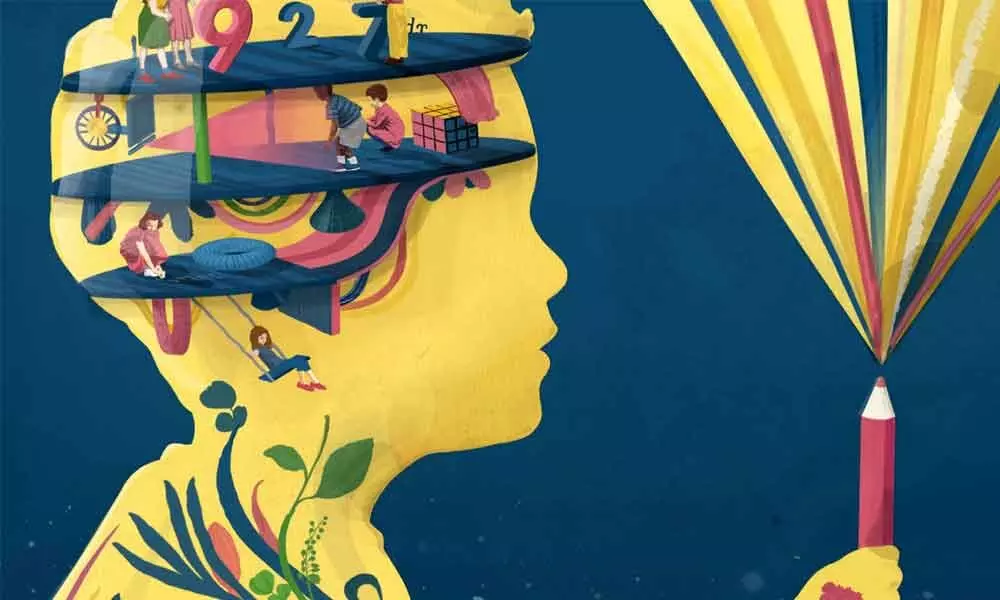How reading boosts cognitive brain development in children

For representational purpose only
It is no news that reading is beneficial for kids. But few understand in what ways it impacts a child’s cerebral development. Consequently, many parents neglect the fruitful reading sessions they could give their kids.
It is no news that reading is beneficial for kids. But few understand in what ways it impacts a child's cerebral development. Consequently, many parents neglect the fruitful reading sessions they could give their kids. In a generation when it is much more convenient to get a child hooked on the phone or tablet, parents must realise the importance of reading sessions with their tots. Mr. Bharat Sharma, Director of Souvenir Publishers shared ample neurobiological evidence that explains the advantages of reading and the detriments of screen time.
Formative years of growth
It is pivotal to understand that reading is not just a part of formal education. It is a practice that children must imbibe much before they begin schooling. Research suggests that a child's brain is the most fertile up till the age of five before they start going to school. Parents should not just stick to educational books such as alphabets and rhymes. Instead, the more enjoyable and entertaining the books are the better. They can range from popular children's fiction, folk tales, fairy tales, and poems to bright and illustrative picture books.
The wholesomeness of the reading experience starts with the glossy pages and the colourful shapes. It is an incredible time to bond with parents and create a cooperative learning environment. Despite not knowing how to read, children develop a healthy and positive attitude towards literacy. Listening to parents read to them helps children associate textual words with sounds. When a parent reads in silly, modulated voices and acts out while narrating the story, it helps children associate the words and pictures with certain emotions.
With stories of animals, princesses and dwarves, they learn about things that they would not encounter in everyday life. At the same time, stories about children like themselves, for instance, a little boy learning to brush his teeth or a girl eating a healthy breakfast, relate with such characters. Such books validate their feelings and experiences and make them feel less alone. As relatability makes for a great source of reference, these books can easily teach good habits to children.
Creativity and vocabulary
Fiction books open the brain's horizon of a child. Stories go beyond real-life experiences and make children think outside the box. While initially pictures and illustrations help them visualise what they read, children develop the power to create their imaginary world eventually. It strengthens their imagination and makes them come up with innovative solutions to problems. While creativity and imagination are often underestimated in our country, they are attributes that enhance the problem-solving and critical thinking skills of children.
Children who grow up being read to by their parents develop strong listening skills. They not only understand what a word looks like, but also learn its correct pronunciation. Books contain many words that they do not commonly hear, and in turn, expand and enrich their vocabulary. In addition, children understand their correct usage, word forms, rhymes, phonetics, synonyms and antonyms, and better sentence formation. Enhanced vocabulary and language skills help children communicate better and build a strong foundation for a skill that will be highly crucial later in life.
Memory and attention span
Reading helps children to recall, comprehend, and concentrate. These are essential skills that get hindered by digital technology. While smartphones and tablets provide bite-sized, instant gratification on command, they diminish one's cognitive abilities and dramatically reduce attention span. Such devices that even get adults addicted can dangerously impact children who never had the taste of any different form of engagement.
On the other hand, reading naturally inculcates concentration and complex cerebral functions in children. It rewards them for focussing and being patient with the story. To keep up with the continuity of a book, children make an effort to remember what they read in the previous chapters. Hence, the habit of reading regularly helps boost memory and recall.
Souvenir Publishers is one such company that values books as the ultimate pedagogue. With profound industry experience in manufacturing children's books since 1972, it understands how they can help with cognitive development. Souvenir Publishers advocates fun and interactive learning with books that have enticing illustrations, and rich vocabulary.
(The author is a Director, Souvenir Publishers)















